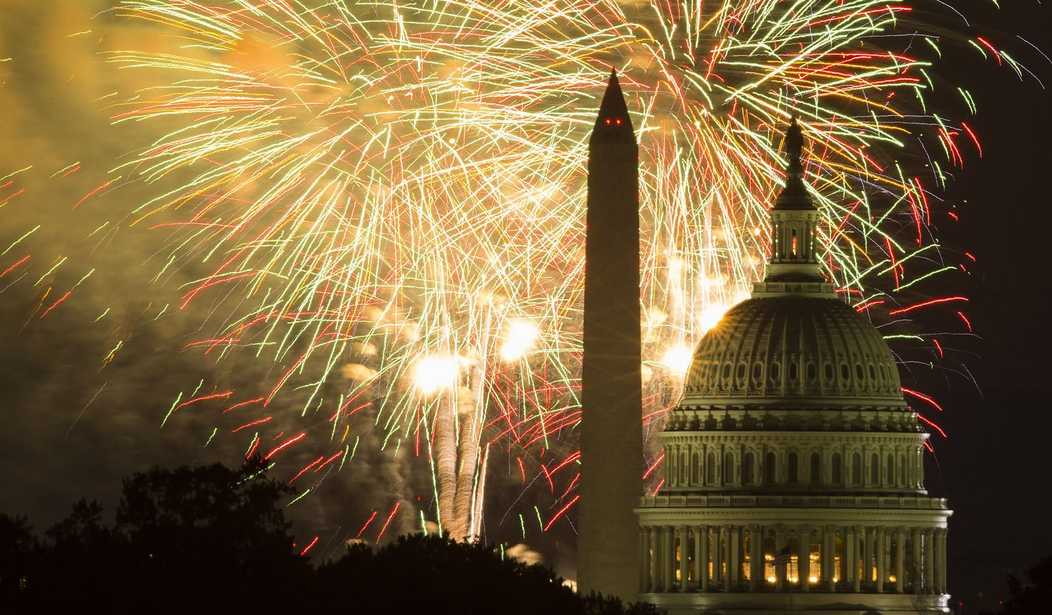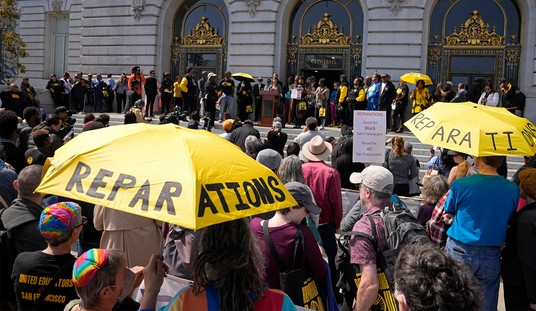They're calling America's 250th birthday the "semiquincentennial." That might be one of the problems right there. It's not exactly a name that rolls off the tongue.
The problem is that the anniversary of the first shots of the war that changed world history forever passed by with little fanfare. The Battles of Lexington and Concord were thunderclaps that preceded the storm that eventually swept away the entrenched notion that power flowed from kings and nobles downward, and that the "peasants" or "commoners" owed their undying allegiance to people whose only claim to authority was their birthright.
The Revolution changed that forever. Celebrating 250 years since that revolt altered the destiny of billions should be a huge deal. So far, it's not.
A Semiquincentennial Commission, created by Congress in 2016 to design ways to commemorate the 250th anniversary of America's founding, has been bogged down by unseemly infighting, charges of cronyism, and lawsuits alleging “a sexist work environment and unequal pay practices.”
A Massachusetts state senator whose district includes Lexington and Concord claims, “We’ve prepared poorly.” Senator Michael Barrett added, “There doesn’t seem to be a plan other than making people happy with small amounts of money.”
The Trump White House is launching a new "Road to Independence" video lecture series leading up to America's 250th birthday. According to Fox News, the video lecture series "will commemorate important moments in American history ahead of the Trump administration's commencement of a full year of festivities that will launch on Memorial Day in honor of America's 250th anniversary. "
"President Trump wishes to celebrate the 250th anniversary of the Declaration of Independence next year with an open heart," Hillsdale President Larry P. Arnn said in his introductory video. "One of the things we must do to commemorate anything — commemorate just means to remember together — first we have to know the thing. We can't remember it very well if we don't know it very well. So, part of the purpose of this series of lectures is to remember."
The "Road to Independence" video series will culminate with the start of the Trump administration's year-long festivities honoring America's 250th birthday.
Historian Alan C. Guelzo, writing for the Wall Street Journal, offers one possible explanation for the subdued 250th birthday celebration.
Why, then, so much lassitude in the face of the 250th anniversary? In part because American historians as a profession have moved over the past half-century from a preoccupation with political, military and intellectual history to social history. Great events, or great leaders, are less important to us than the long swing of economic and cultural trends. But a larger part grows from the polarization and cynicism of these times, when the temptation is to believe, conspiracy-fashion, that skepticism is a virtue and to discover that all lofty aspirations are merely covers for power.
No doubt the American Revolution had its share of hypocrites, and no amount of patriotic huffing and puffing can erase that. The same Thomas Jefferson who wrote the Declaration of Independence was an owner of slaves, and an abuser of one female slave in particular, Sally Hemings. Washington, James Madison and even Benjamin Franklin also held people in bondage. Nor is anything gained by pleading that this is simply a “paradox.” Slavery persisted in the new American republic, despite its Enlightenment principles, until it had to be rooted out eight decades later at the cost of hundreds of thousands of lives.
It's not "anti-American" to chronicle America's mistakes, hypocrisies, or even crimes against humanity such as slavery. They are as much a part of us as our altruistic nature, our generosity of spirit, and our compassion for our fellow man. That they exist in the same nation at the same time is one of the truly remarkable aspects of America that is not recognized by either side in this debate.
The failure to live up to our most cherished principles is a universal human failing. Why should our own failings be used to "prove" we're unworthy of love and respect and patriotic devotion?
The point is that what makes America unique is our striving to create that "more perfect union." "America holds the 'promise of joy,'" wrote the great political author Allen Drury. "Not the absolute certainty of success, but simply 'The Promise' that we can be better."
Remembering that will make the festivities surrounding the 250th anniversary of America's founding meaningful, regardless of all the naysayers and party poopers.










